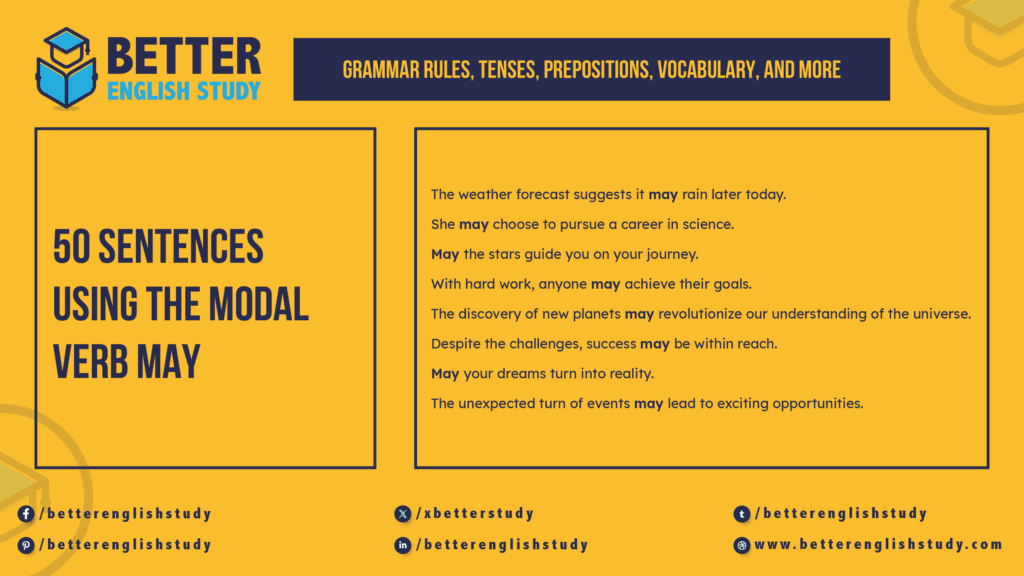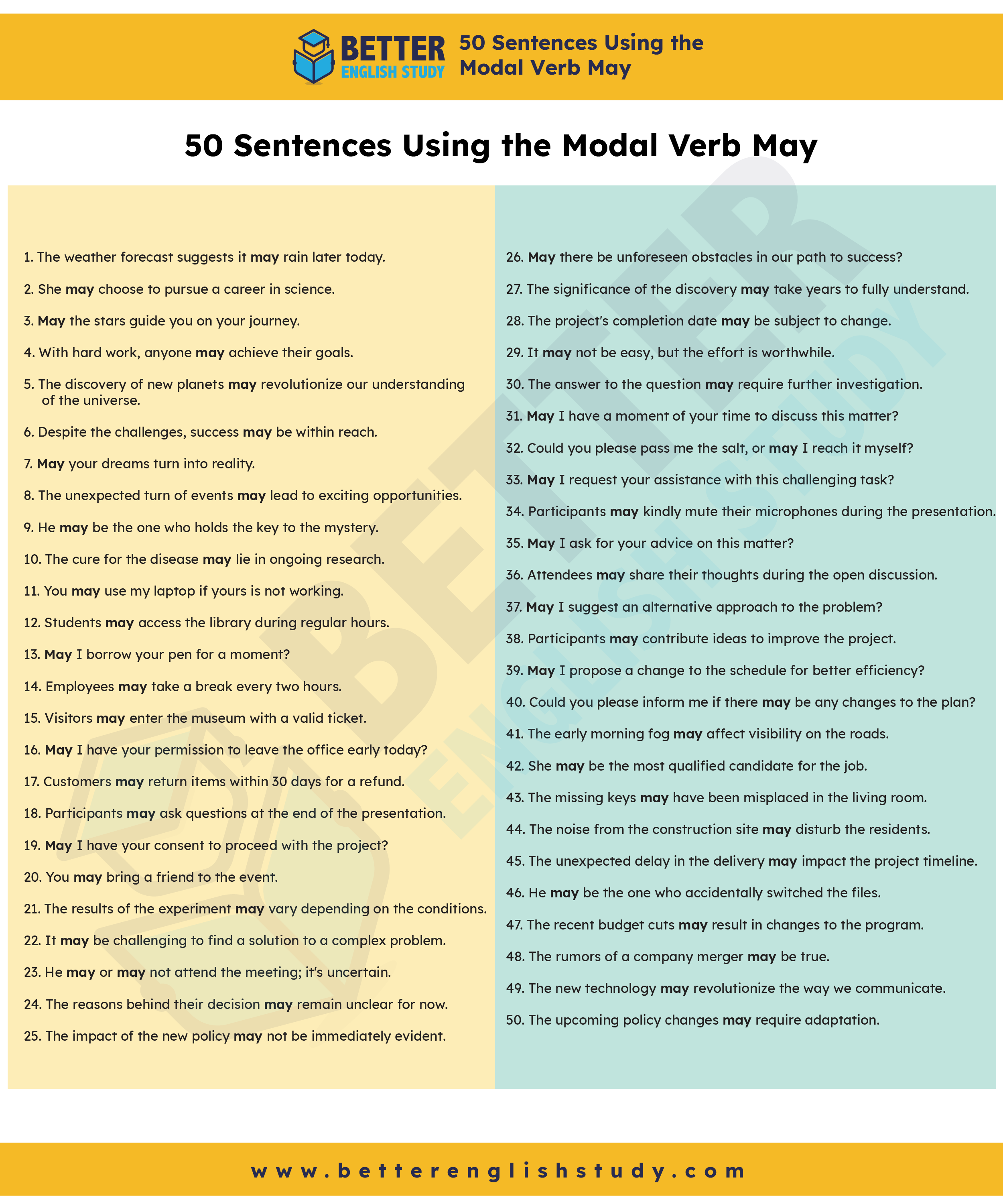
The modal verb “may” is a versatile component of the English language, expressing possibilities, permissions, and even uncertainty. Understanding how to use “may” appropriately is crucial for effective communication.
In this article, we will explore 50 example sentences that showcase the various contexts in which the modal verb “may” can be employed.
When to Use May
Before delving into the sentences, it’s crucial to understand when to deploy “may.” This versatile modal verb is employed to indicate permission, express probability or likelihood, make polite requests, or even discuss potential outcomes. Mastering the use of “may” enhances your ability to convey a range of meanings with precision and clarity.
Now, for a better understanding, let’s explore the examples.
1. Possibilities
- The weather forecast suggests it may rain later today.
- She may choose to pursue a career in science.
- May the stars guide you on your journey.
- With hard work, anyone may achieve their goals.
- The discovery of new planets may revolutionize our understanding of the universe.
- Despite the challenges, success may be within reach.
- May your dreams turn into reality.
- The unexpected turn of events may lead to exciting opportunities.
- He may be the one who holds the key to the mystery.
- The cure for the disease may lie in ongoing research.
2. Permissions
- You may use my laptop if yours is not working.
- Students may access the library during regular hours.
- May I borrow your pen for a moment?
- Employees may take a break every two hours.
- Visitors may enter the museum with a valid ticket.
- May I have your permission to leave the office early today?
- Customers may return items within 30 days for a refund.
- Participants may ask questions at the end of the presentation.
- May I have your consent to proceed with the project?
- You may bring a friend to the event.

3. Uncertainty
- The results of the experiment may vary depending on the conditions.
- It may be challenging to find a solution to a complex problem.
- He may or may not attend the meeting; it’s uncertain.
- The reasons behind their decision may remain unclear for now.
- The impact of the new policy may not be immediately evident.
- May there be unforeseen obstacles in our path to success?
- The significance of the discovery may take years to fully understand.
- The project’s completion date may be subject to change.
- It may not be easy, but the effort is worthwhile.
- The answer to the question may require further investigation.
4. Requests
- May I have a moment of your time to discuss this matter?
- Could you please pass me the salt, or may I reach it myself?
- May I request your assistance with this challenging task?
- Participants may kindly mute their microphones during the presentation.
- May I ask for your advice on this matter?
- Attendees may share their thoughts during the open discussion.
- May I suggest an alternative approach to the problem?
- Participants may contribute ideas to improve the project.
- May I propose a change to the schedule for better efficiency?
- Could you please inform me if there may be any changes to the plan?
5. Expressing Probability
- The early morning fog may affect visibility on the roads.
- She may be the most qualified candidate for the job.
- The missing keys may have been misplaced in the living room.
- The noise from the construction site may disturb the residents.
- The unexpected delay in the delivery may impact the project timeline.
- He may be the one who accidentally switched the files.
- The recent budget cuts may result in changes to the program.
- The rumors of a company merger may be true.
- The new technology may revolutionize the way we communicate.
- The upcoming policy changes may require adaptation.
These 50 example sentences illustrate the diverse applications of the modal verb “may” in the English language. Whether expressing possibilities, seeking permissions, acknowledging uncertainty, or making requests, “may” adds nuance and flexibility to communication.
